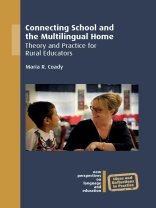This book examines the educational gaps that multilingual students in rural communities experience. It argues that responsive, successful relationships between schools and multilingual families are a crucial aspect of all educators’ work and that no single strategy will work for all families. Rural multilingual family engagement involves building meaningful partnerships and relational trust, based on significant knowledge of families’ cultures and language repertoires. Educators can reframe their work by learning from families and building on the strengths of multilingual families, which are too-often overlooked in school policies and educator practices. This is the first book to focus specifically on rural school settings. However, the conceptual framework of equity and linguistically responsive pedagogy are applicable across settings for educators who wish to support their multilingual students and families.
Tabella dei contenuti
Introduction
Chapter 1. Multilingual Family Engagement in Rural Settings: Context of the 21st Century
Chapter 2. Framing the Issues: A ‘Strengths-Based Approach’ to Family Engagement
Chapter 3. Family-Centered Differentiated Engagement
Chapter 4. Praxis and Practice: Becoming Aware of Multilingual Families in Rural Settings
Chapter 5. Praxis and Practice: Acting to Engage Multilingual Families in Rural Schools
Chapter 6. The Intersectionality of Rurality and Immigration for Latino Families in The United States
Chapter 7. The Community Partner (With Robin Lewy and Fran Ricardo, The Rural Women’s Health Project)
Chapter 8. Conclusions for 21st Century Multilingual Family Engagement
Circa l’autore
Maria R. Coady is Irving and Rose Fien Endowed Professor and Associate Professor of ESOL/Bilingual Education at the University of Florida, USA. Her research specialises in English Language Learners and multilingual students, especially those in rural settings. Her most recent publication is Connecting School and the Multilingual Home (Multilingual Matters, 2019).












